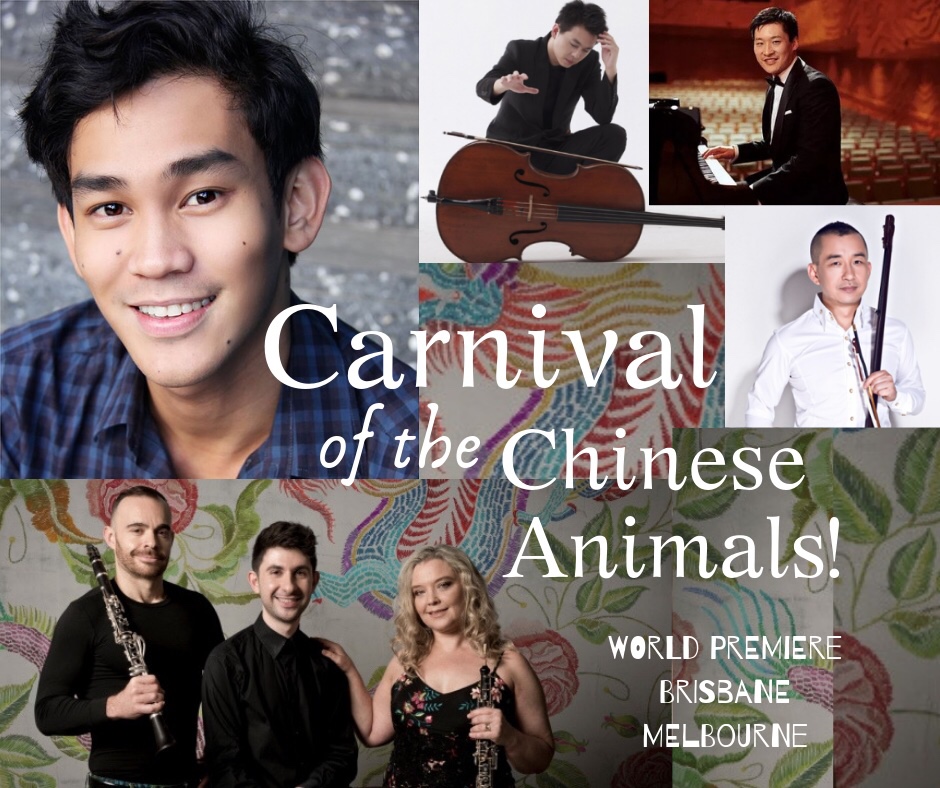
During this Lunar New Year season, the fantastic Southern Cross Soloists will premiere my quirky new work Carnival of the Chinese Animals
See event details here or in my calendar.
This 20-min piece for narrator and large chamber ensemble was commissioned by the venerable Southern Cross Soloists for their opening concerts in this, their 24th year.
The concerts coincide with the 15th night of the Chinese Lunar New Year, which in fact is the first night of the full moon.
As far as I know, there has not been a concert work based on the centuries-old folk tale of how the 12 animals of the Chinese Zodiac came about. Which is interesting because Western societies tend to be quite aware of the Zodiac animals – certainly here in Australia – and every February, the media will announce the Year of the Pig or Horse or whatever the animal year is. So I decided to write both words and music (as Prokofiev did).
We Australians tend to know something about the Chinese Zodiac because every February, the media announces the Year of the Rooster or Horse and so on. But did you know there is a centuries-old fairy tale behind the animal mythology?
Like any traditional story, there are many versions, though the underlying plot is the same except for the central figure – it’s either a Jade Emperor or a Buddha who summons the animals, and they all have to cross a river to reach him. The order in which they arrive determines the animals’ sequence in the Zodiac. I’m sure the Jade Emperor (who is a deity) version was first, but after Mayahana Buddhism arrived in China in the 3rd century BCE, the Buddha figure also took on deity-like traits.
Inspired by Prokofiev who wrote his own words for Peter and The Wolf, I wrote my own version of the story – a Buddha, nearing completion of his spiritual work on earth and soon to depart for Nirvana, wants to say goodbye to the animals of the earth. When the animals arrive they listen to Zen-like sayings from the Buddha, learning simple, beautiful truths about everyday life.
The whole work has a tuneful, almost innocent nature, this being a deliberately family-friendly piece and appropriate for a child’s first encounter with classical music (again, like the Saint-Saëns and Prokofiev that inspired it). Personally, this is the first time I’ve written a piece based on or even imitating Chinese music (and Hindu music for the Buddha figure) and I hope it’s as fun to hear as it was to write, especially the ending in which the animals put on a party (the ‘carnival’ in the title) to celebrate the wisdom that the earth learned from the Buddha.

